What happened in the Russia-Ukraine war this week? Catch up with the must-read news and analysis | Ukraine
Every week we wrap up the must-reads from our coverage of the Ukraine war, from news and features to analysis, visual guides and opinion.
US arrests suspect over Pentagon leaks
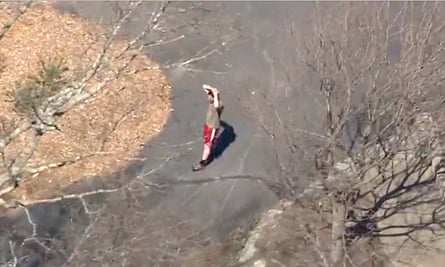
The FBI arrested a 21-year-old air national guardsman in Massachusetts suspected of being responsible for the leak of classified US documents that laid bare concerns about Ukraine’s expected counter-offensive and its air defences, Julian Borger, Manisha Ganguly and Adam Gabbatt reported.
Jack Teixeira was arrested at his home in the town of North Dighton by FBI agents. Helicopter news footage showed a young man with shorn dark hair, an olive green T-shirt and red shorts being made to walk backwards towards a team of agents standing by an armoured vehicle dressed in camouflage and body armour, pointing their rifles at him.
In Washington, the US attorney general, Merrick Garland, said Teixeira was being held “in connection with an investigation into alleged unauthorised removal, retention and transmission of classified national defence information”.
Garland’s use of language suggests Teixeira will be facing charges under the Espionage Act. Each charge under the act can carry an up to 10-year prison term, and prosecutors could treat each leaked document as a separate count in his indictment. He could be facing a very long jail sentence.
Earlier in the week, Julian Borger laid out the key revelations from the leaked documents, including suggestions that the UK has deployed as many as 50 special forces to Ukraine, that Serbia agreed to arm Ukraine, and that Ukraine could fall “well short” in a planned Spring counteroffensive. Archie Bland asked how much damage the leaks are likely to cause. Peter Beaumont looked at what we know about Teixeira.
Fears Ukraine’s drone supremacy may soon be over
Crouching in a freezing basement or risking it all on top of a nine-storey building, the drone squads in the war zone of Bakhmut are ubiquitous. Some are forced to lurk a few hundred metres from, or even on, the frontline. Without them, Ukraine’s efforts to hold on to the embattled city would be much harder, perhaps impossible, Dan Sabbagh and Artem Mazhulin reported.
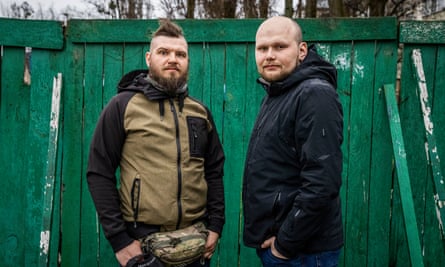
But the concern for Ukraine, according to three frontline drone operators deployed in the city over the winter, is that the Russians are close to countering the most popular models in operation, those made by the Chinese manufacturer DJI. “They’re adept and they are manufacturing these special jamming systems,” said Yaroslav, 31.
“So actually, I believe like in three, four months, DJI will not be usable,” the drone specialist said. It means a scramble has been going on to look for replacements, prompting countless Ukrainian initiatives in probably the most dynamic aspect of the near 14-month war, a conflict in which drones have so far largely helped defenders.
Fragmented world’s rival blocs ‘risk new cold war’
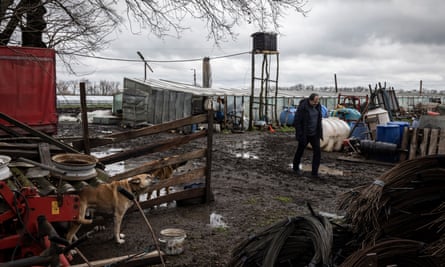
Fragmentation of the global economy into rival trading blocs runs the risk of prompting a new cold war, the head of the International Monetary Fund said this week. Kristalina Georgieva, the IMF’s managing director, said a combination of the Covid pandemic, the war in Ukraine and shortcomings with globalisation had led to a potentially dangerous splintering.
Georgieva, who was born in Bulgaria, said that having lived behind the iron curtain during the cold war, she had no desire to see a repeat of such circumstances. “I am among those who know what the consequences are of a cold war.” Larry Elliott reported this story.
Luke Harding, meanwhile, spoke to the Ukrainian farmers impacted by trade tussles – in particular, the Black Sea Grain corridor deal. The Kremlin has voiced dissatisfaction with the deal. It has threatened to revoke it and last month said it would only accept a 60-day extension, instead of the previous 120-day rollover. Kyiv, meanwhile, accuses Moscow of sabotage. Ukraine’s deputy infrastructure minister for seaports and maritime, Yurii Vaskov, has warned that if the deal collapses, global food prices will rise by 15%.
Zelenskiy urges leaders to act over beheading videos
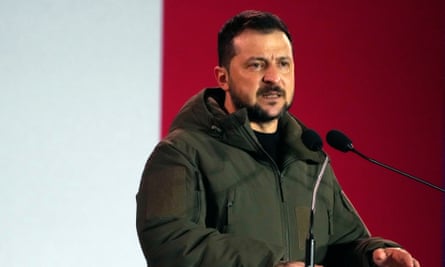
Volodymyr Zelenskiy urged international leaders to act after disturbing video emerged on Wednesday of Russian soldiers apparently beheading a Ukrainian prisoner of war lying on the ground. Ukraine’s president said the world could not ignore the “evil” footage, which has not been verified by the Guardian.
“How easily these beasts kill. We are not going to forget anything. Neither are we going to forgive the murderers,” Zelenskiy said. “There will be legal responsibility for everything. The defeat of terror is necessary.”
The clip appears to show a member of the Russian army using a knife to cut the head off the soldier, Luke Harding reported. It is unclear when or where the video was shot. It may have been filmed last summer, judging by the green foliage in the background.
A second video appears to show the beheaded corpses of two Ukrainian servicemen lying next to a destroyed military vehicle. A voice says: “They killed them. Someone came up to them. They came up to them and cut their heads off.”
The Ukrainian resort town resisting Russia
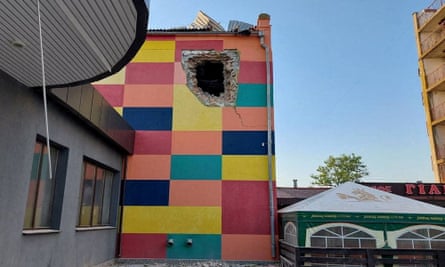
The view from the Ukrainian town of Ochakiv appears idyllic. Beyond the beach, a narrow strip of land stretches out across the sea. The peninsula in Mykolaiv province is known as the Kinburn spit. In happier times holidaymakers would take a boat from Ochakiv and camp among the dunes. The nature reserve is home to swans, pelicans and migrating birds.
Last June it got a new and unwelcome visitor: Russia. Soldiers captured the rustic territory, with its summer houses and mini-lakes, and turned it into a military base. Ever since the Russian army has bombarded Ochakiv, which is five miles (8km) away. Truck mounted launchers release Grad missiles, sending them over the Black Sea. Afterwards the crews speed off and take cover amid the mazy sands.
On Friday, the Russians launched their biggest attack yet. At 5am they hit Ochakiv with 72 rockets. Another 50 fell in the district. The barrage lasted for over an hour. The town’s 7,000 residents woke in darkness to the sound of explosions. Two people were injured, one badly. Thermite projectiles fell from the sky and bathed the waterfront in a strange white light. Luke Harding reports.
‘My mother’s books brought joy to the children of Ukraine’
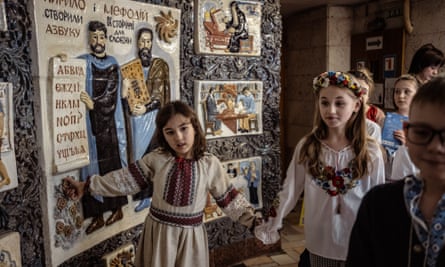
“The National Library of Ukraine for Children in Kyiv, a city at war for more than a year, is defiantly open, busy and creative. Director Alla Gordiienko describes it as “a place for emotional shelter” where “everything we do starts with a book”. “A book is the best doctor for the soul,” says the librarian’s child psychologist Lada Tsybulska, one of the many roles that make this place special, especially during a war that traumatises Ukraine’s children.
“My late mother – Shirley Hughes, beloved author and illustrator of several hundred children’s books and winner of the all-time Kate Greenaway prize for children’s literature – would have found a corner of heaven in this place, writes Ed Vulliamy, were she not a citizen of the real thing. (She died in February 2022, the day after Russia launched its attempted full-scale invasion of Ukraine.) This place is what she dreamed of, and this is why much of Mum’s collection of her own books arrived here last month, why Dogger – who, along with Alfie and Annie Rose, was her most famous character – had to come to Ukraine.”
